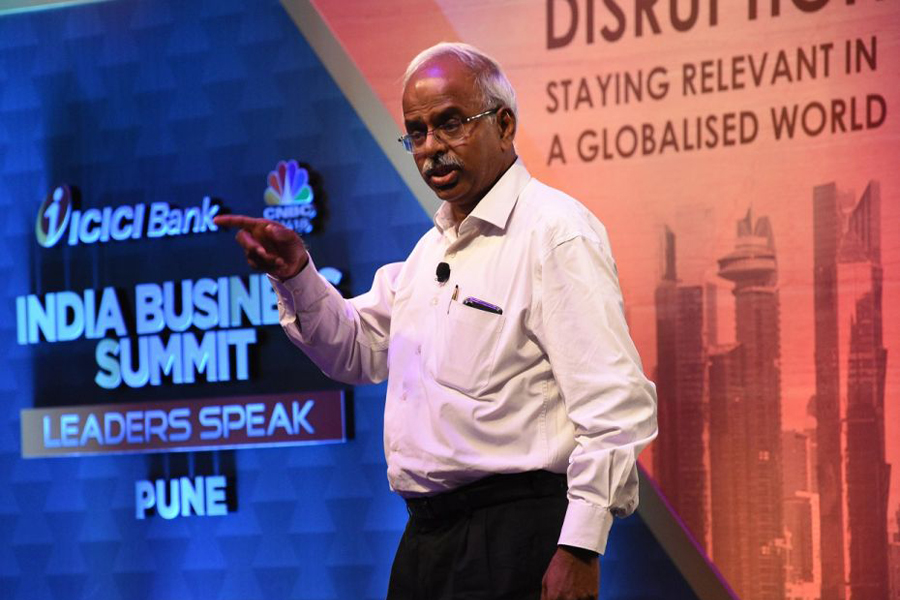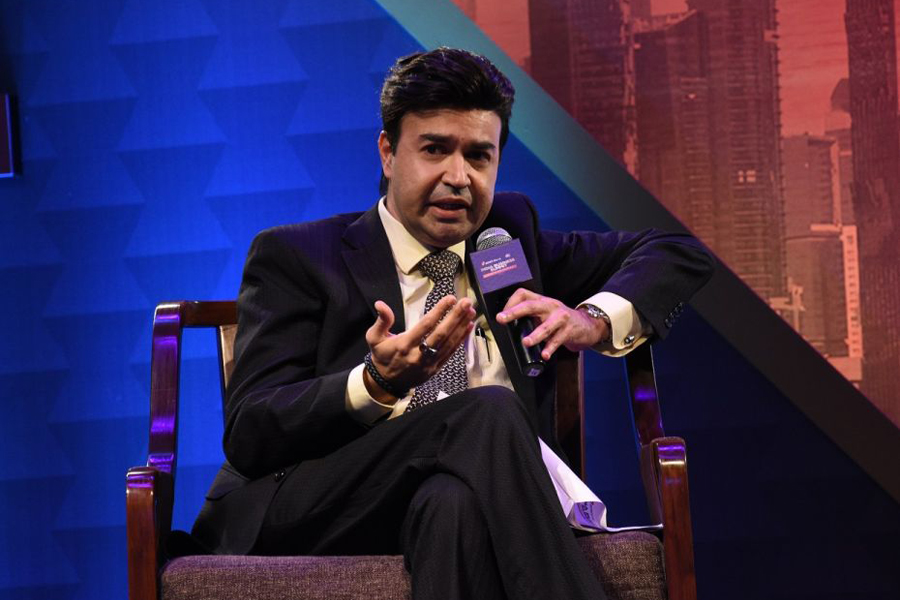Disrupt or be disrupted!

Dr. A Velumani delivers a rousing keynote address at the Pune edition of the India Business Summit
Disruption has become closely associated with technological innovations. And with the pace at which industries and businesses are evolving, it seems that big, game-changing innovation is the key to a company’s success and relevance in the 21st century.
And if there’s one Indian city that has embraced technological advances and leveraged them to march towards success, it’s Pune. It’s no surprise, then, that the city played host to the inaugural leg of the India Business Summit – Leaders Speak, a joint initiative by CNBC-TV18 and ICICI Bank, which brought CXOs, innovators and thought leaders together to discuss, debate and deliberate how technology is changing the business world.
The Pune edition was the first of six summits, each of which will see some of the brightest minds in the country take on a different, relevant theme in a major Indian city. These insightful exchanges will then culminate in the Finance15 list, which pays tribute to outstanding leaders in the spheres of business, economy and finance.
With a theme that takes on the fourth Industrial Revolution and technology’s role in the growth of the Indian economy, it was only fitting for a special address from Sonam Wangchuk to flag off the event. The innovator, who founded the Students' Educational and Cultural Movement of Ladakh (SECMOL), has received acclaim for his work on ice stupas that use scientific principles to preserve water. He is also known for advocating for educational reforms for students in the Ladakh region, helping them garner modern academic knowledge, along with practical, environmental, social and traditional skills.
In his address, Wangchuk emphasised the importance of going back to basics to shape a future that is prosperous, inclusive and sustainable. He cited the example of SECMOL, which powers the majority of its campus using solar energy, employs sustainable practices, and empowers the local community. While these practices have age-old roots, Wangchuk and his team at SECMOL have leveraged advances in technology to ensure optimum usage. For instance, there’s nothing groundbreaking about using the sun for warmth. But at SECMOL, solar power being used to keep the cowshed warm led to their cows giving three times more milk than most other cattle in Ladakh!
Another rousing speech came from the keynote speaker, Dr. A Velumani, Founder, CMD & CEO of Thyrocare Technologies. As he walked listeners through his journey so far, Dr. Velumani provided keen insight into what makes a successful business. From patience and perseverance to frugality, there was much to learn from his anecdotes. Perhaps the most important takeaway was Dr. Velumani’s emphasis on how products and services cannot be true disruptors if they aren’t priced low enough to control the cost. “Take less to get more,” he said.
And while discourse about technological disruptions has become commonplace, an engaging panel discussion Technological Disruption: Staying Relevant In A Globalised World looked at the oft-ignored human aspect.


Vijay Chandok, Executive Director of ICICI Bank, speaks about technological disruption
Technological changes can often make an irreversible impact on the human lives they interact with. Take, for instance, the advent of e-banking and mobile banking. Digital transactions have become commonplace and have benefited the end-consumers but for bank employees, these disruptions have given rise to the need to re-tool and reskill themselves to be relevant in their current jobs.
At such a time, it is crucial for leaders to invest in their human resources just as much as their technological innovations. As Dr. Andreas Lauermann, President & MD of Volkswagen India, put it, “Human resources and technology go hand in hand.” And at Volkswagen India, this means constant skilling and re-skilling of employees, with an apprenticeship program that allows them to put these skills into practice.
For ICICI Bank, this also entails acquiring the right talent, rewarding them and providing relevant training, as highlighted by Executive Director Vijay Chandok.
But what about the customers? One factor that holds companies back from unleashing their innovative side is the apprehension that their customer base might not necessarily accept or adapt to any big changes.
While ICICI Bank has found success with e-learning tools and detailed guides to availing its online facilities, other organisations have also taken on-ground initiatives to reach their vast customer base. “We have, between Pune and Nagpur, almost 5,000 Metro Mitras, who are physically associated with us,” shares Dr. Brijesh Dixit, Managing Director, Maharashtra Metro Rail Corporation. Apart from this program that aims to encourage a safer and smoother experience for commuters, Nagpur Metro Rail has also conducted over 200 sessions of ‘Metro Samwad’, which takes place in the vicinity of 36 stations and answers any questions that the public could have about the service. Combined with promotion on social media, radio and local television, this is the perfect example of how disruption can make customers’ lives easier without disrupting them.
And while the narrative surrounding disruption may have gotten warped along the way that is what it all boils down to. In the words of Viren Joshi, CEO & President of Sigma Electric Manufacturing Corporation, disruption is merely enhancing a company’s capabilities to face the world and ensure the best possible experience for the customer. And as Dr. A Velumani so succinctly put it in his keynote speech for the evening, disrupt or get ready to be disrupted!


